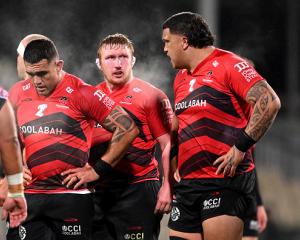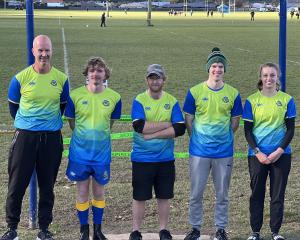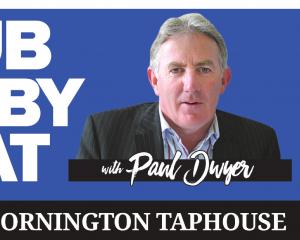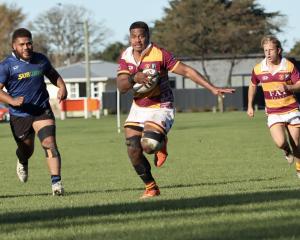New Zealand Rugby high performance referee manager Rod Hill was in Dunedin last week to watch the Highlanders and Sharks game and also meet Dunedin referees.
Hill said though it was early days with the new rules - which gave the tackler less time to try to turn over the ball and did away with a defined gate - one union had reported some positive feedback.
‘‘One province reported that after three rounds they had an increase of 35% in the number of tries being scored compared to last year,'' Hill said.
‘‘Now, we are mindful it is early days and there could be other reasons for that figure but, by and large, the feedback we have got has been positive.
‘‘What we are seeing is more players getting on their feet and creating a contest where the ball is. Teams are looking to get together and blow the other team off the ball and [that] might be able to get more back play into the game.''
There was the fear defending teams would simply fan out across the park and not commit anyone to the breakdown.
But teams were finding if they committed defenders to the breakdown they could push the attacking team off the ball and win possession.
More players at the breakdown was creating more space for the backs, Hill said.
Eight provinces were trialling the new rules in club rugby, which would be used in the Mitre 10 Cup later this year.
The way the game was being played under the new rules, there appeared to be less chance of injuries at the breakdown, as players did not get themselves into so many awkward positions.
Super rugby was still being played under the old rules.
A whole series of new rules were being trialled around the world and a decision would be made next year by World Rugby on which rules would be changed.
One of the other suggested changes was to have players 1m behind the last feet in line with the breakdown, but this has been done away with.
Hill said there was some concern around injury, as players could turn themselves into missiles by having a run-up when making tackles.
Six point tries and two point conversions, dropped goals and penalties were being introduced in the Heartland Championship and Hill said the only concern he had was it may be difficult for teams to get ahead, as all points would add up to even numbers.
The union now had seven fulltime referees, with three new referees this year - Brendon Pickerill, Jamie Nutbrown and Paul Williams - all going well at Super rugby level.
Hill said having a bunker for all TMO decisions was something he wanted, but it was a huge cost.
‘‘The question is, do we want to get every decision to be 100% right? Of course we do, but we don't want to be like the NFL. We don't want to go that far.
‘‘One thing with the TMO is whenever a question is asked it is always critical for the game. It's not an easy decision; the whole world stops. They can do all the training, but they don't get the opportunity to practise.''












